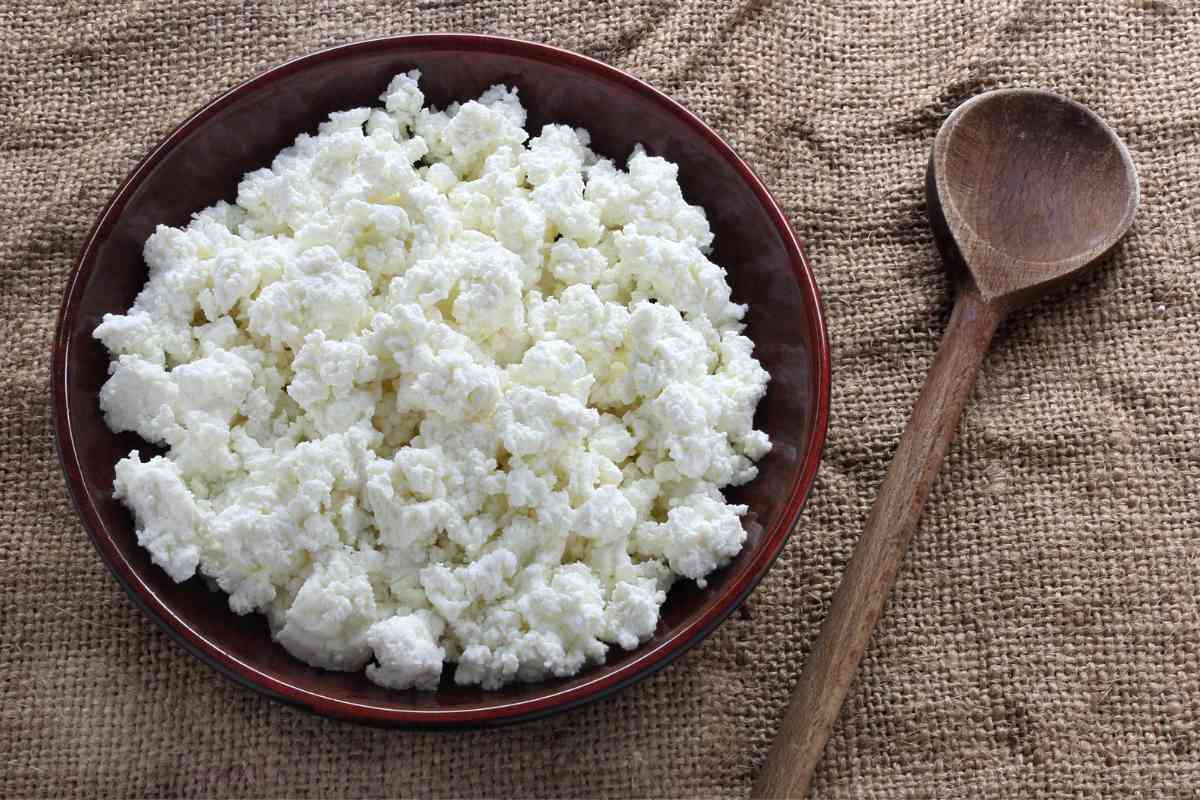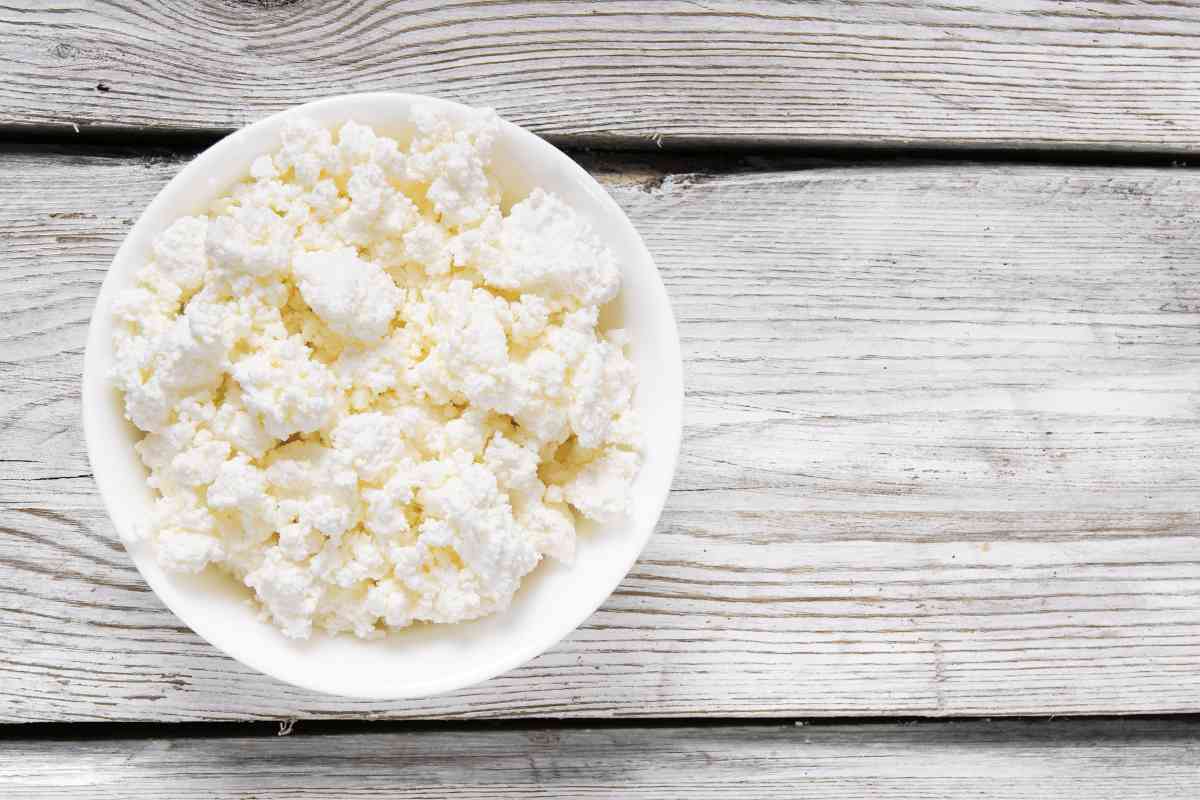Can Puppies Eat Cottage Cheese? Benefits & Potential Risks
Some foods, such as chocolate that are fine for humans, are terrible for dogs. Can puppies eat cottage cheese or not?

Can Puppies Eat Cottage Cheese?
Cottage cheese is tasty and healthy for dogs and puppies. It has lots of protein, is fairly low in calories, and is full of nutrients that can prevent health problems. However, dogs with certain conditions should not have this food.
I gave my dog cottage cheese as a treat many times as a puppy and she liked the food very much. Usually, it is a good nutritious snack for puppies.
Cottage cheese is usually safe for puppies. It is also nutritious and can be great for a growing dog.
However, cottage cheese is not good for every puppy. There are some conditions that make cottage cheese bad for your dog.
Is Cottage Cheese Good for Most Puppies?
Yes, cottage cheese is usually a healthy food. It is nutritious and will help your dog grow without making your dog fat.
Cottage Cheese is Great for an Overweight Dog
Cottage cheese is low-fat and low-calorie but high-protein and high-nutrition food. It can help your dog lose weight without feeling hungry.
If you don’t want your puppy to be too heavy for its age, you might not be sure what to give it as a treat in addition to its regular food.
Try cottage cheese, your puppy will quite likely like it even though it is fairly low in calories.
Cottage Cheese Has Protein
Protein is vital for humans and animals, especially when growing. Puppies need protein to grow their muscles, tendons, ligaments, and cartilage.
The health of the skin, hair, nails, and blood also depends on adequate protein intake. Your dog’s organs also need protein to grow.

Calcium
Calcium is great for bone health, both for dogs and humans. Calcium is particularly important for puppies, who need three times as much calcium as adult dogs do. Calcium is also necessary for muscle control, so too little of it may lead to seizures.
Vitamin B12
Vitamin B12 prevents your dog from getting certain health problems. A lack of B12 makes your dog lethargic and uninterested in food, plus have weak legs.
Over time, B12 deficiency may lead to gastrointestinal disorders.
Sometimes, B12 supplements are necessary. However, your dog will usually get enough B12 if you merely feed it high-quality dog food. Extras like cottage cheese can make sure your puppy gets enough B12.
Potassium
Potassium moves water in and out of cells. This is necessary to prevent the cells from becoming dehydrated and to control the PH of blood. It is also necessary for muscle contraction and nerve signals and keeps the heart beating at a constant rate.
Selenium
Selenium is necessary for a dog’s proper thyroid function. It is required to make DNA and maintain the immune system.
A lack of selenium can lead to inflammation, weak muscles, and heart problems.
Will Your Dog Like the Taste?
Yes, most but not all dogs will like the taste of cottage cheese. It has a rich taste that usually appeals to dogs and puppies.

Don’t Feed Your Dog too Much Cottage Cheese
Even if your dog really likes it, cottage cheese should not be a big part of your puppy’s diet. If it is very young, it should still be mostly or entirely on puppy formula.
Even after it has switched to solid food, cottage cheese shouldn’t be more than something like a tenth of your dog’s diet.
Use it as a treat or a healthy snack you give your dog occasionally.
Reasons not to Give a Dog Cottage Cheese
There are some conditions and health problems that make cottage cheese bad for a dog. Salty cottage cheese is not good for dogs.
Lactose Intolerance
Like humans, many dogs cannot digest dairy products. To digest dairy products, your body must produce lactase.
Most dogs only produce a little of it and can only digest a small amount of dairy. Some dogs are more lactose tolerant than others, but they won’t digest a lot of dairy. A lot of the time, a little cottage cheese is harmless and won’t give your dog indigestion.
How Do You Know if Your Dog Has This Condition?
If your dog can’t digest lactose at all, it will get indigestion half an hour to two hours after eating any dairy. This indigestion cannot seriously hurt your puppy but is bad enough that you should keep your dog away from dairy foods. The symptoms include:
- Diarrhea in your puppy
- Vomiting in your puppy
- Bloating
- Gas
- Pain
- Weakness
- Thirst
If you notice that your dog has lactose intolerance, stop giving it dairy entirely. Make sure your dog has enough water to recover from any indigestion it experiences. You can also give your dog pumpkin to calm its stomach.

Is the Cottage Cheese too Salty?
Too much sodium is bad for a dog’s health and digestion. If the cottage cheese tastes salty, don’t give it to a puppy.
Does Your Dog Have Pancreatitis?
If your dog has Pancreatitis it may respond poorly to new foods. The puppy might not be able to digest cottage cheese if it has this condition.
See How Your Dog Reacts to It
Your dog may not like cottage cheese, or may not be able to digest it. Give our dog a small amount of cottage cheese at first, then give it a little more.
See if your dog gets any digestive problems. If not, you can start giving your dog cottage cheese as a treat regularly.
Talk to Your Vet First
If you want to be on the safe side, talk to your vet before introducing cottage cheese into your dog’s diet. Your vet might know something you don’t know about why cottage cheese isn’t a good idea for your puppy.
Are Other Dairy Products Safe for Puppies?
Most dogs can digest lactose only in small quantities. Giving a dog a lot of any kind of dairy is a bad idea and will lead to indigestion. Cottage cheese is relatively low in lactose, as is cheddar cheese.
Certain ingredients found in dairy products can also be bad for dogs. Talk to your vet if you aren’t sure. You might find that your dog likes dairy or cannot digest even a small amount of it.
Puppies can tolerate lactose better than adult dogs. They need some lactose tolerance to digest their mother’s milk. When a dog gets older, most or all of the lactose tolerance goes away.
Some Artificial Sweeteners Are Toxic to Dogs
Before giving your dog anything sweet, such as ice cream, check out the ingredients carefully. Sugar is bad for dogs, but some sugar alternatives are much worse.
Xylitol, for example, is downright toxic to dogs. Processed foods with a lot of ingredients can seriously hurt your dog if you aren’t careful. Find out about the ingredients first.
Key Takeaways
- Usually, cottage cheese is safe and healthy for puppies. However, it can be bad for some dogs. If you want to be on the safe side, start with only a very little and talk to your vet first.
- Cottage cheese contains protein, which helps build a puppy’s muscles, tendons, ligaments, and organs. It also contains calcium (bone health) and other essential nutrients.
- Cottage cheese is a good snack that won’t make your dog gain weight too quickly. It is high in protein and nutrition without being too high in calories.
- Cottage cheese isn’t good for every dog. If your dog has lactose intolerance, even a small amount of dairy will give it an upset stomach. Even if your dog is somewhat lactose tolerant, it probably can’t digest a lot of dairy food.
- Dairy foods are generally fairly safe for dogs. However, they may contain ingredients that are bad for dogs. Talk to your vet, and give your dog only a little of the unfamiliar food at first.